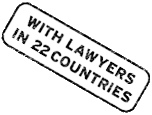ELDH Statement on the Russian invasion of Ukraine
The ELDH condemns the Russian invasion of Ukraine, which has been ongoing since 2014 and intensifying since February 24, 2022. This military incursion is unjustifiable. It constituted a violation of the UN Charter’s prohibition of the use of force (Article 2(4), and of the territorial integrity of Ukraine, prohibited by the UN Charter, through an armed attack that has already caused the deaths of many people – soldiers and civilians.
The ELDH welcomes the decision of the ICC Prosecutor, Karim A.A. Khan QC, to proceed with opening an investigation into any past and present allegations of war crimes, crimes against humanity or genocide committed on any part of the territory of Ukraine by any person from 21 November 2013 .
The ELDH rejects the Russian government’s argument that it is entitled under Article 51 to exercise collective self-defence in favour of the “People’s Republics of Luhansk and Donetsk”, only recognised by Russia and South Ossetia . Moreover, the Russian President’s order to place nuclear forces on special alert poses a serious threat to international peace and security.
The invasion shows that the effectiveness of international law has been eroded dangerously in recent decades. The invasion of Ukraine started with the illegal annexation of Crimea in 2014. It joins a multitude of violations of international law and the most serious crimes committed by various states, especially by the UK and USA, individually and through NATO, against Serbia in 1999, the UK and USA in the invasion and occupation of Iraq from 2003, and the 20 years disaster of the invasion of Afghanistan by the UK, USA and their allies including Germany, from 2001 to 2021
Such violations of international law, including the ongoing invasion of Ukraine cannot be justified. A solution to the conflict and the restoration of Ukraine’s borders will not be achieved militarily, but only through a withdrawal of Russian intervention troops and a return to negotiation.
NATO countries must also accept the blame for not seizing the opportunity after the collapse of the Soviet Union to overcome the East-West bloc formation through a common security architecture, as Russia also demanded. Instead, they continued to rely on military deterrence and NATO’s eastward expansion. Active support by NATO countries for the Maidan protests and the overthrow of the then incumbent president contributed to the escalation of the conflict. Serious negotiations on Ukraine’s neutrality and on a peace order in Europe that would have included, not excluded, Russia would have significantly reduced the risk of a military conflict.
Russia must end its invasion of Ukraine, and the Russian troops must leave Ukraine. Russia and NATO must avoid any steps that can be interpreted as an intention to use nuclear weapons.
- .
- We reject chauvinism, xenophobia and racism in all their manifestations in the present crisis.
- We support all attempts at negotiation and peaceful settlement between Russia and Ukraine. .
- ELDH stands by the UN Charter and calls for the implementation of effective measures for the preservation of peace and security.
- The invasion of Ukraine should provide the occasion for a reconsideration and strengthening of international law, the International Court of Justice and the International Criminal Court. There is also an urgent need to reform and strengthen the OSCE, which was created specifically for the resolution of conflicts of this kind.
- It is imperative that the work of the Council of Europe and the European Court of Human Rights can continue, and that Russia can resume its full status when the current violations have ceased.
- We call on all European governments to ensure that a system is put in place so that Russian citizens can have easy access to visas if they need leave their country.
- A new arms race and the emergence of a new Cold War must be prevented by a new European peace order that includes Russia and a new global peace order that also includes China through the UN. This also requires a long-term economic integration of Russia into the European economic area that builds mutual trust.
- We call on European governments to activate the Temporary Protection Directive as an exceptional measure to provide immediate and temporary protection to displaced persons from non-EU countries and those who cannot return to their country of origin. Non-EU states such as the UK must enact similar measures.
- We call on all European governments to guarantee access to Europe for non-Ukrainian residents of Ukraine, who are at greater risk due to Russian military activity and possible future political interference. Among them are many human rights defenders and opposition activists. These individuals should be guaranteed easy access to the territory and protection;

